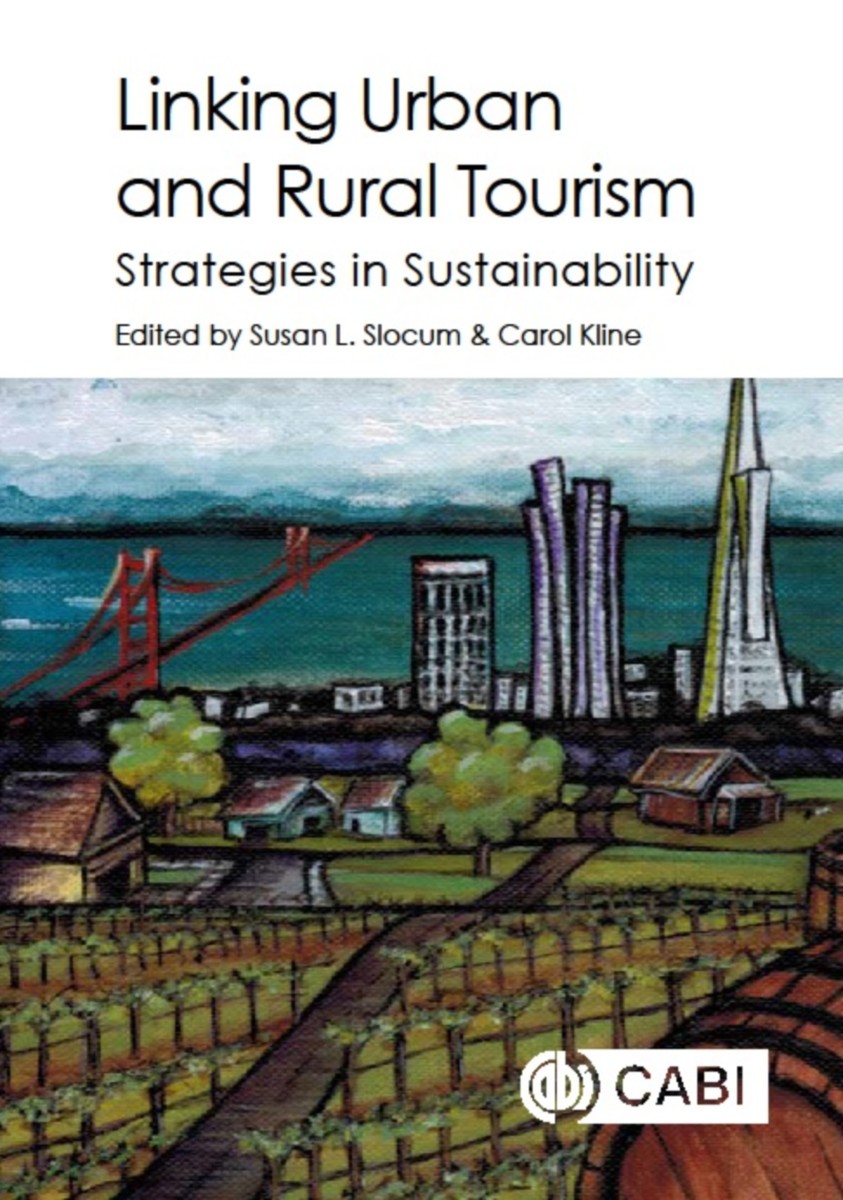Linking Urban and Rural Tourism
Strategies in Sustainability
- Publisher
CABI - Published
26th July 2017 - ISBN 9781786390141
- Language English
- Pages 256 pp.
- Size 6.75" x 9.5"
- Images tables
Destinations rely on regional strategies to support and enhance the tourism product through regional partnerships and integration. Integrated tourism is defined as tourism that is explicitly linked to the economic, social, cultural, natural, and human structures of the region in which it occurs. Integrated tourism has evolved to include numerous meanings and definitions but all of which have a vertical approach.
The first of its kind, this book moves away from the vertical approach and provides insight into inclusive regional development strategies that support both the needs of urban and rural areas while enhancing the tourist experience, supporting the positive impacts of tourism and mitigating the negative. Regional studies tend to portray either an urban or rural focus without acknowledging that these spaces often constitute joint governance structures, similar historical and cultural roots, and economic dependencies. Sustainable tourism promotes sourcing locally, such as using rural agricultural products in urban tourism experiences. Furthermore, innovative marketing strategies linking tourism heritage, attractions, food and drink trails, and artisans with urban visitors are emerging.
Including theoretical and applied research and international case studies, this will be a valuable resource to academics, students, and practitioners working in tourism development and regional policy.
List of Contributors
Introduction—Kelly S. Bricker, University of Utah
Part I: Urban Rural Linkages
1. Discussing Rural–Urban Tourism: A Review of the Literature—Marika Gon, University of Udine, Italy
2. Experiencing and Connecting to Nature: An Urban to Rural Association—Andrew Holden and Katherine Lupton, both University of Bedfordshire, UK
3. Addressing Power: Stakeholder Involvement Within an Integrated Tourism Planning Process—Lauren Duffy and Gyunghoon Kim, both Clemson University
4. Foodscapes as Alternate Ways of Knowing: Advancing Sustainability and Climate Consciousness through Tactile Space—Christina T. Cavaliere, Stockon University
Part II: Fringe Tourism
5. Cool Suburbs: a Strategy for Sustainable Tourism? —Robert Maitland, University of Westminster, UK
6. The Urban–Rural Tourism Relationship: A Case of Suburban Farm Shops—Susan L. Slocum, George Mason University, USA and Kynda R. Curtis, Utah State University
7. Resident and Tourist Perception of People, Towns and Amenities in Fringe Settings—Carol Kline, Appalachian State University, Lauren Duffy, Clemson University, and Dana Clark,
Appalachian State University
Part III: Strategies in Sustainability
8. The Urban–Rural Tourism Mix: A Partnership of Convenience or Sustainability Imperative—Acha-Anyi Paul Nkemngu, University of the North-West, South Africa
9. From Centre to Periphery: Inequality, Indigeneity and Domestic Tourism in Guatemala—Chantell LaPan, North Carolina State University
10. Beyond Economic Development: Can the Arts Lead Communities Out of Poverty? —John Delconte, University of Massachusetts
11. Theme Park as a Link between Urban and Rural Territories—Dominic Lapointe, University of Quebec, Canada
12. Connecting Urban to Rural: Can the San Francisco–Napa Valley Relationship be Facilitated in
Pennsylvania? —Alexis Solano and Christopher Proctor, USDA Rural Development
13. Farm and Food Tourism as a Strategy for Linking Rural and Urban Land, People and Place: The Case of Western North Carolina—Leah Greden Mathews, University of North Carolina
14. Utah Farm-Chef-Fork: Linking Rural Growers with Urban Chefs to Enhance Local Food Sourcing—Kynda R. Curtis and Roslynn Brain, both Utah State University
15. Corporate Sustainability as an Opportunity for Tourism Partnerships: A Case Study on Fairmont Hotels & Resorts—Karla Boluk, University of Waterloo, Canada
Index
Susan L. Slocum
Susan L. Slocum teaches at George Mason University and specializes in sustainable economic development through tourism and policy implementation at the regional and national level. Working with communities to enhance backward linkages between tourism and traditional industries, she has worked with rural communities in the US, UK, and indigenous populations in emerging tourism destinations in Tanzania. She has published 4 edited books and authored 2 books, including a textbook on food and agricultural tourism.
Carol Kline, PhD
Carol Kline is a Professor and the Director of the Hospitality and Tourism Management program at Appalachian State University. Her teaching and research interests have historically focused broadly on tourism sustainability, including topics such as foodie segmentation, craft beverages, agritourism, tourism entrepreneurship, and tourism in developing economies. However, she now gears her research solely on animals and she teaches a course called Animals, Tourism, & Sustainability. She is part of the Race, Ethnicity, and Social Equity in Tourism (RESET) initiative, which includes animals within the study of social equity. She is founder of Fanimal Inc., a non-profit that helps individuals find animal-focused careers.


